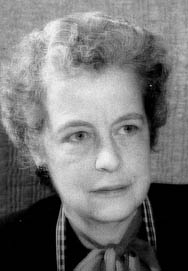How Did International Women’s Day Start?
The start of International Women’s Day goes back to February 1908 in New York City. During this time, women who were garment workers went on strike to oppose their working conditions. Women were given undesirable jobs, lower wages and had to deal with sexual harassment and the only way to make their voice heard was to hold a strike and march in the streets of New York City. During this strike, women demanded shorter working hours, more pay and the right to vote. To honor those strikes, National Women’s Day was celebrated in the United States for the first time in February 1908 which spearheaded the Socialist Party of America.
Why Is International Women’s Day celebrated on March 8?
March 8 is a day that the achievements of women all over the world are celebrated. This special day signifies International Women’s Day. It is a day to recognize and honor the achievements of women throughout history and into our modern times. On March 8, we celebrate influential female figures from all cultures and backgrounds and across the globe. The date was derived from the first celebration in a war-torn Russia which was facing food shortages and many other obstacles. The protest took on a global form when the nation celebrated the first International Women’s Day on February 23, 1917. This date is the equivalent of March 8 on the Russian calendar which marks the significance of the date in today’s celebrations.
Women Who Changed the World
There have been many influential women through history. Some have achieved great social, economic and political feats that have bettered the lives of women globally.
Ada Lovelace (1815-1852)
Ada Lovelace was an English mathematician and writer. She is primarily known for her work on the mechanical general purpose computer called the Analytical Engine which was proposed by Charles Babbage.
Clara Barton (1821-1912)
Clara Barton was a nurse and American humanitarian. In 1881, she organized the American Association of the Red Cross. Because of her work and compassion, she became known as the Angel of the Battlefield.
Emmeline Pankhurst (1858-1928)
Emmeline Pankhurst was an English political activist best remembered for spearheading the UK suffrage movement and helping women gain the right to vote. She founded the Women’s Social and Political Union in 1903 using militant tactics to fight for women’s suffrage.
Sarah Breedlove (1867-1919)
Louisiana native, Sarah Breedlove, overcame poverty, illiteracy and prejudice to become one of the most influential businesswomen of all time. She developed a successful line of hair care products and employed female workers to market the products. She was the first female-self-made millionaire in U.S. history.
Marie Curie (1867-1934)
Marie Curie was the first women to receive the Nobel Prize and she won it twice. The first Nobel Prize was in physics and the second was in Chemistry. Curie also discovered radium which is highly radioactive, making it useful in attacking cancer.
Coco Chanel (1883-1971)
Coco Chanel was a French businesswomen and designer. Not only did she found her namesake, the Chanel brand, but she was also credited with creating a casual and chic style which liberated women from the constraints of the corseted silhouette during the post World-War I era.
Amelia Earhart (1897-1937)
Amelia Earhart is best known for her contributions to aviation. She was the first woman to fly solo across the Atlantic and Pacific oceans and beyond. She paved the way for women to work in aviation and helped establish the need and justification for commercial transport.
Mother Teresa (1910-1997)
Among the many accomplishments of Mother Teresa, she was best known for her humanitarian work and advocacy for the poor and helpless. She founded the Order of Missionaries of Charity which was dedicated to helping the poor.
Rosa Parks (1913-2005)
Rosa Parks is referred to as the Mother of the Civil Rights Movement. She is famously known for refusing to give her seat up on a bus to a white man. It was this defiant act that began a movement to end legal segregation in America.
Rosalind Franklin (1920-1958)
Rosaline Franklin was a British chemist who was best known for her role in the discovery of how DNA is structured. She was also noted for her pioneering use of X-ray diffraction. Her work was central to the understanding of the molecular structures of not only DNA, but also RNA, viruses, graphite and coal.
Extraordinary Women Who had an Historical Impact on HVAC Industry
Women have made many contributions to the science and engineering fields. The achievements they’ve made in the HVAC industry cannot be overstated. The industry is what it is today because of the contributions of some extraordinary women.
Women comprise about 50 percent of the workforce in the U.S. according to the Bureau of Labor Statistics. It is no wonder, then, that their contributions in the field of heating and cooling are significant and should be recognized. The inventions of some extraordinary women in the HVAC industry changed heating and cooling forever.
Margaret Ingels (1892 – 1971)
 Margaret Ingels was the first woman in the U.S. to earn a mechanical engineering degree. She spent six years researching HVAC and made significant contributions in developing the modern air conditioning system. Of her many accomplishments, she is credited with creating the effective temperature scale for comfort. This scale took into consideration airflow and humidity to measure what the temperature actually feels like. Ingels is also credited with inventing the sling psychrometer which measures the humidity in the air. It was this invention that brought about the temperature scale for comfort.
Margaret Ingels was the first woman in the U.S. to earn a mechanical engineering degree. She spent six years researching HVAC and made significant contributions in developing the modern air conditioning system. Of her many accomplishments, she is credited with creating the effective temperature scale for comfort. This scale took into consideration airflow and humidity to measure what the temperature actually feels like. Ingels is also credited with inventing the sling psychrometer which measures the humidity in the air. It was this invention that brought about the temperature scale for comfort.
Alice H. Parker (1895-1920)
 At the beginning of the 20th century, many homes were heated with wood or coal-burning stoves. This way of heating was inefficient and dangerous. Alice H. Parker addressed these issues and invented the gas-powered furnace in 1919. Heat was created by using safe, natural gas. Duct work and vents allowed the heat to be evenly distributed throughout the home.
At the beginning of the 20th century, many homes were heated with wood or coal-burning stoves. This way of heating was inefficient and dangerous. Alice H. Parker addressed these issues and invented the gas-powered furnace in 1919. Heat was created by using safe, natural gas. Duct work and vents allowed the heat to be evenly distributed throughout the home.
The Future of Women in the HVAC Industry
The role of women in the HVAC industry has leveled the contracting field for those who are interested in business ownership or technical opportunities. Women have exciting opportunities to join the HVAC business at all levels. No matter if it’s due to more advanced STEM (science, technology, engineering & mathematics) education or a desire to advance technology, women are becoming an integral part of the HVAC industry. It appears that women are finding out that there is great satisfaction with a rewarding career in HVAC. Throughout history and into modern times, women have been a significant part of the heating and cooling industry and will continue to be.






